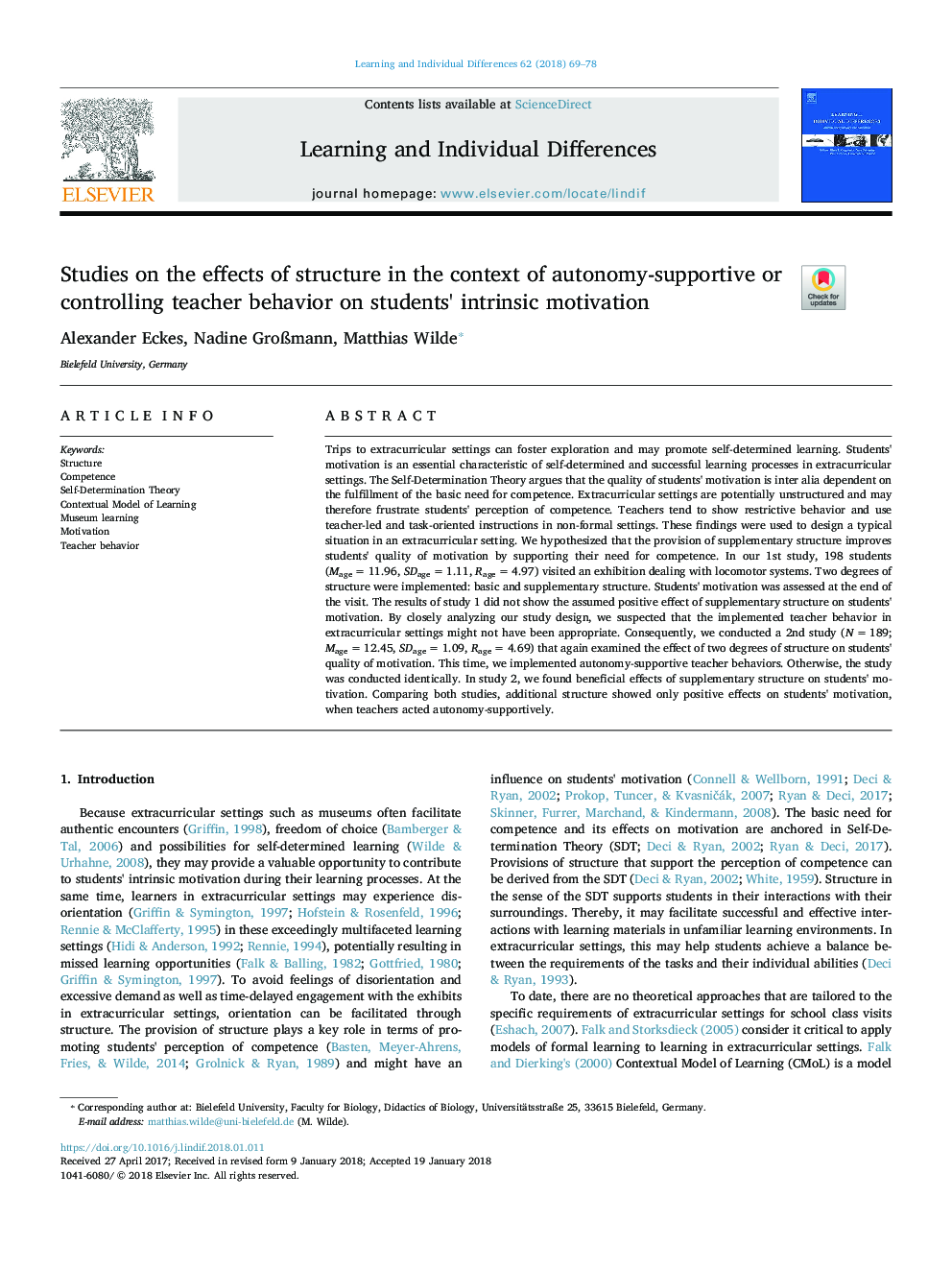| Article ID | Journal | Published Year | Pages | File Type |
|---|---|---|---|---|
| 6844448 | Learning and Individual Differences | 2018 | 10 Pages |
Abstract
Trips to extracurricular settings can foster exploration and may promote self-determined learning. Students' motivation is an essential characteristic of self-determined and successful learning processes in extracurricular settings. The Self-Determination Theory argues that the quality of students' motivation is inter alia dependent on the fulfillment of the basic need for competence. Extracurricular settings are potentially unstructured and may therefore frustrate students' perception of competence. Teachers tend to show restrictive behavior and use teacher-led and task-oriented instructions in non-formal settings. These findings were used to design a typical situation in an extracurricular setting. We hypothesized that the provision of supplementary structure improves students' quality of motivation by supporting their need for competence. In our 1st study, 198 students (Mageâ¯=â¯11.96, SDageâ¯=â¯1.11, Rageâ¯=â¯4.97) visited an exhibition dealing with locomotor systems. Two degrees of structure were implemented: basic and supplementary structure. Students' motivation was assessed at the end of the visit. The results of study 1 did not show the assumed positive effect of supplementary structure on students' motivation. By closely analyzing our study design, we suspected that the implemented teacher behavior in extracurricular settings might not have been appropriate. Consequently, we conducted a 2nd study (Nâ¯=â¯189; Mageâ¯=â¯12.45, SDageâ¯=â¯1.09, Rageâ¯=â¯4.69) that again examined the effect of two degrees of structure on students' quality of motivation. This time, we implemented autonomy-supportive teacher behaviors. Otherwise, the study was conducted identically. In study 2, we found beneficial effects of supplementary structure on students' motivation. Comparing both studies, additional structure showed only positive effects on students' motivation, when teachers acted autonomy-supportively.
Related Topics
Social Sciences and Humanities
Psychology
Developmental and Educational Psychology
Authors
Alexander Eckes, Nadine GroÃmann, Matthias Wilde,
